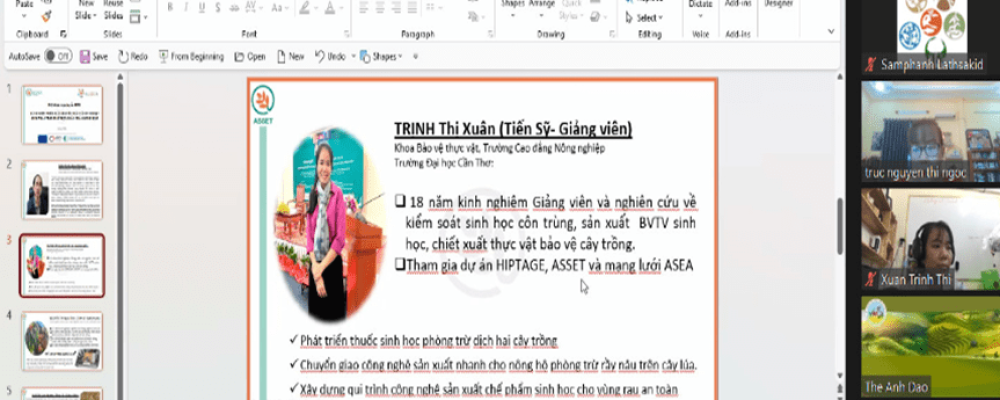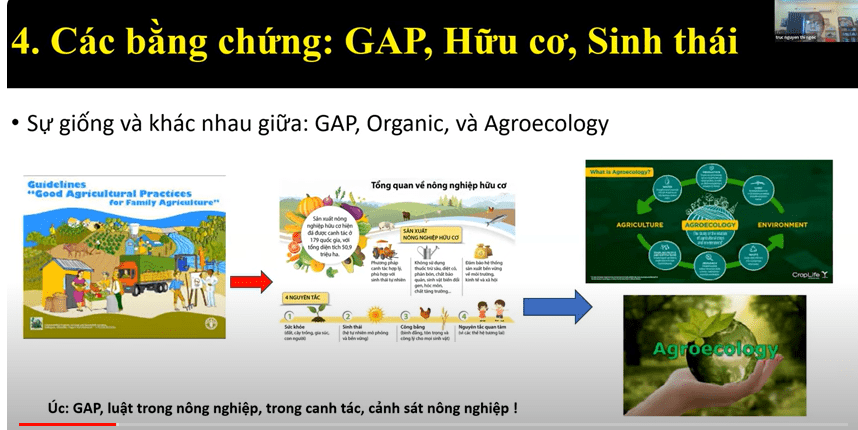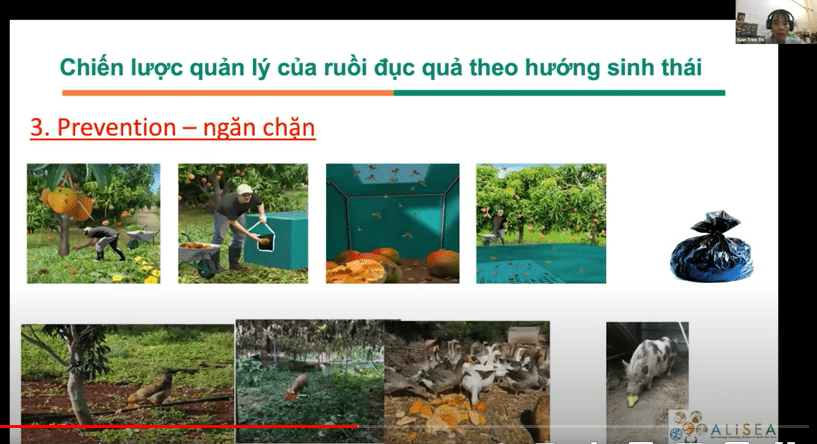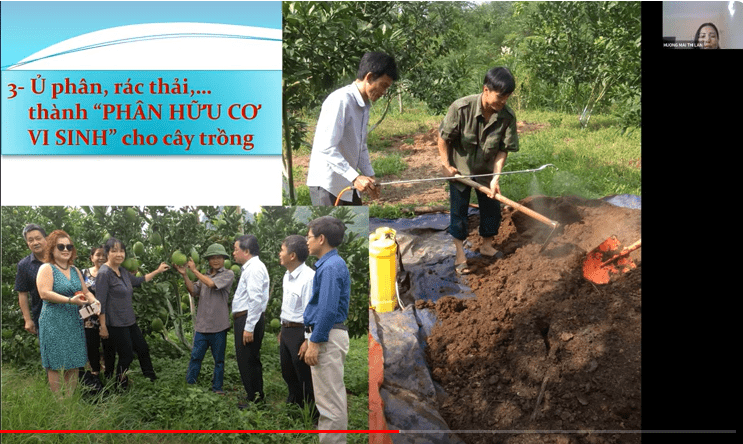By Thuy Thu DOAN – CISDOMA
The Agroecology Learning Alliance in Southeast Asia (ALiSEA) hosted a successful online workshop titled “Initiatives to Accelerate Agroecology Transition Bio-input in Vietnam” on April 11, 2024. This event brought together 59 passionate individuals from diverse backgrounds, including farmer cooperatives, academia, NGOs, and government agencies, united by their interest in promoting a more comprehensive understanding of bio-inputs in the context of agroecology transition.
Ass. Prof. Dr. Dao The Anh emphasized the crucial role of bio-inputs in sustainable agricultural production. He highlighted the need for clear understanding of available organic fertilizers, regulations for self-declaration of ecological products, and consumer awareness. He also mentioned the upcoming government draft on the use of biological products.
03 Expert Presentations:
Dr. Nguyen Thi Ngoc Truc presented the historical development and innovation of biological production in Vietnam, including the isolation of bacteria and fungi.
Dr. Trinh Thi Xuan discussed chemical pesticide use reduction and the development of biological solutions for pest control. She also shared technical knowledge on rapid-transfer bio-preparation production.
MSc. Mai Thi Lan Huong showcased the effectiveness of using indigenous microorganisms, highlighting their advantages and successful implementation in farmer cooperatives.
Participants actively engaged in discussions, raising questions about the effectiveness of bio-traps and bio-pesticides, and the use of bio-bedding in manure waste treatment. Hoa Binh farmer unions expressed interest in adopting the indigenous microorganism model for their chicken and pig farms.
Dr. Doan Thu Thuy, BOM of ALiSEA Vietnam, acknowledged the low adoption rate of bio-based inputs and identified the lack of knowledge about their economic and social benefits as a key barrier. Three action points were proposed to promote awareness:
- Improve the legal framework for faster approval and registration of new bio-input products.
- Train extension agencies on the management of agricultural systems using bio-inputs.
- Increase research on the real-life impact of bio-inputs on agricultural productivity, soil health, and the environment.
Additional Resources:
- Video recording: Initiatives to Accelerate Agroecology transition Bio- input in VietNam
- OCOP: One Commune One Product
- Research on Bio-Inputs for Agricultural Sustainability in South America: link




